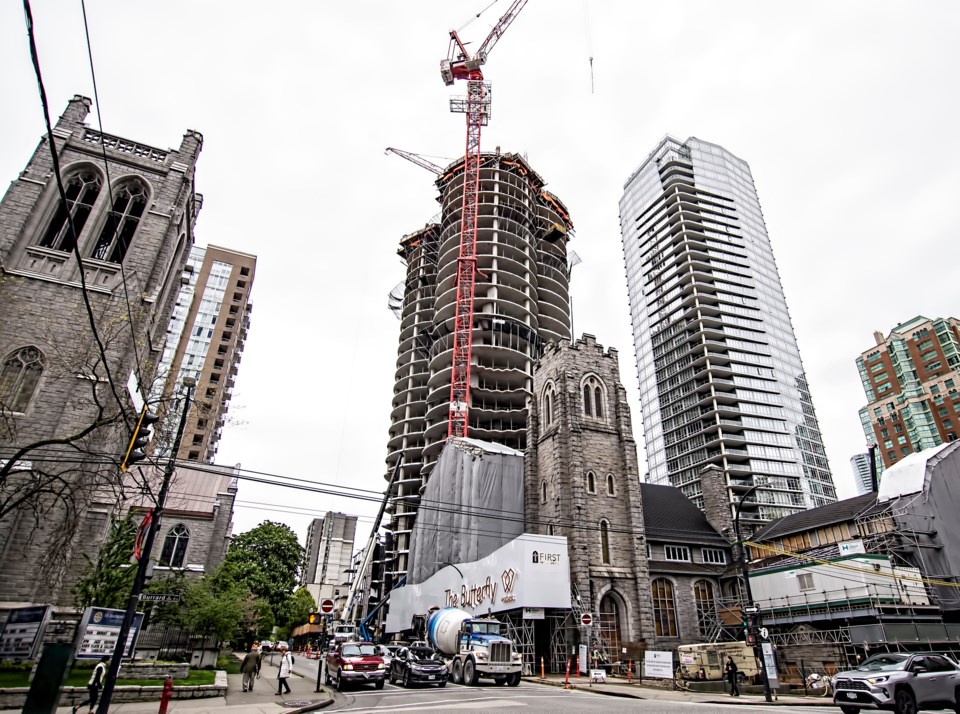New home construction in Canada could fall by nearly a third (32 per cent) this year compared to 2022 and may not see a recovery until 2025, according to the spring Housing Market Outlook 2023 from Canada Mortgage and Housing Corp.(CMHC).
“We expect housing starts to see a significant decline in 2023, due to constraints in new construction. These include labour shortages and elevated costs of materials in the construction sector, combined with higher project financing costs from increased interest rates,” said Gustavo Durango, CMHC senior economist, market insights.
The three Prairie provinces will outperform, with the federal housing agency forecasting “a much smaller housing start decline” as compared to the national average.
The largest Prairies’ city, Calgary, for example, is forecast to see a total of 17,400 starts this year, up about 100 units from 2022.
Meanwhile, first-quarter data shows Metro Vancouver new-home construction is already blowing past CMHC projections.
CMHC says Canada-wide residential starts could fall as low as 176,890 units this year, down from 261,849 in 2022. Its base case scenario calls for a 19 per cent decrease in starts across the country, provided interest rates remain stable and the economy does not sink into a recession.
The Prairie provinces will outperform, CMHC forecasts, saying this is due to:
- the positive impact from high interprovincial migration from other regions over the forecast period;
- relatively healthy ownership affordability due to relatively low home prices; and
- generally stronger economic outlook.
CMHC’s outlook for a “sharp decline” in B.C. housing starts this year, however, defies the current new-home construction pace in the province’s biggest market.
In the first quarter of 2023, 7,318 new homes started in Metro Vancouver, up nearly 70 per cent from the same period last year, according to CMHC’s own data. Purpose-built rental housing starts were up 50 per cent in the same period, to 1,988 units.
Still, CMHC sees Vancouver area starts declining in 2023, with a worst-case scenario of just 18,700 new units and a best case of 26,100, compared to 25,983 new home starts in 2002.
“Starts will fall because developers face a shrinking customer base for condominiums, in addition to elevated construction and financing costs,” said Branden Batch, CMHC senior analyst in Vancouver.
However, if the current new residential construction pace is maintained, it would produce more than 29,000 starts this year in Metro Vancouver, the highest level in at least three years.
.



